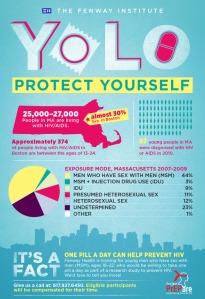I like to think of myself as a curator of friendships. A content specialist of hearts painted gold, who brave the desert creatures and stay awake through the Gethsemane of the soul.
I collected this one heart over a decade ago and tucked her carefully inside my own. She had just returned from the West Bank where she had made her home with Palestinian Arabs. Returned to a Midwestern town, to a small, Caucasian, pro-Israel Church, full of cars with W bumper stickers in the parking lot, where people lined up asking her, “How was Pakistan?” And her face would glow the color of her hair and she would smile and graciously say, “It was fine,” and then swallow a fiery lump down in her throat.
That summer, I watched as she found healing and solace while tending to her melliferous bees. We would spread fresh honey from bell jars on bread, and I would ask her question after question about the conflict within. She would point out specific regions on the map that was hung above my bed, finding hope when I began to understand.
Little did she know that the West Bank was just the beginning of the constant cycle of suffering, compassion, and freedom that would be her life. She wandered the streets of Calcutta, among the heroin-addicts and slum dwellers. Built shelters in Sri Lanka when the tsunami decimated Southeast Asia. Became homeless when Katrina blew in from the Atlantic. Joined me as I worked with sex slaves in the red light district of Bangkok. Provided food and housing to refugees in Darfur. Went back to Jordan. Moved to Afghanistan. Fled when her colleagues were kidnapped. Sought asylum in Amsterdam. And then resettled in Kenya.
She has been homeless and displaced; a refugee and a wanderer. She has seen more brutality inflicted upon the human race than most people in this generation. She has stared at the heavens and begged for rain and then seen a small black cloud the size of a hand appear. She is covered in spiritual DEET, capable of entering into the darkest of territories and coming out, afflicted, but not crushed. She has died over and over again and has held tightly to the only thing this life can give to her.
And when she writes to me now, from her small cottage in Kenya, and describes the spiritual trenches with tears flowing freely and with intention, I can easily share with her about the kid I know who contracted HIV from his uncle, my college friend who was raped and is now with child, and the aching of my own broken heart from love that has been lost.
Because she walks around with her own broken heart, cracked from the hundreds of times she has known and loved and suffered. Because she sits with me, a million miles away, but in the same Garden. Crying out with me that the cup would be taken, dreading the constant request for another death that will ultimately bring life. A woman who would never fall asleep while I am sweating blood, because she is sweating blood, too.
And it is for her that I write this, to remind her that he is coming and has overcome. That where sin abounds, grace abounds all the more. That sorrow and sighing will pass away. That blessed are those who mourn, for they will be comforted. That a bruised reed he will not break. That by his stripes we are healed. That we will no longer be called “forsaken.” That we will run and not grow weary. That there will be a garment of praise. That there is always more. That the sons of Satan will fall down at our feet and confess that he has always loved us.
So, let us lift the cup and drink quickly now.
Here’s to her.
And here’s to Him.
http://whitneyfry.wordpress.com/


